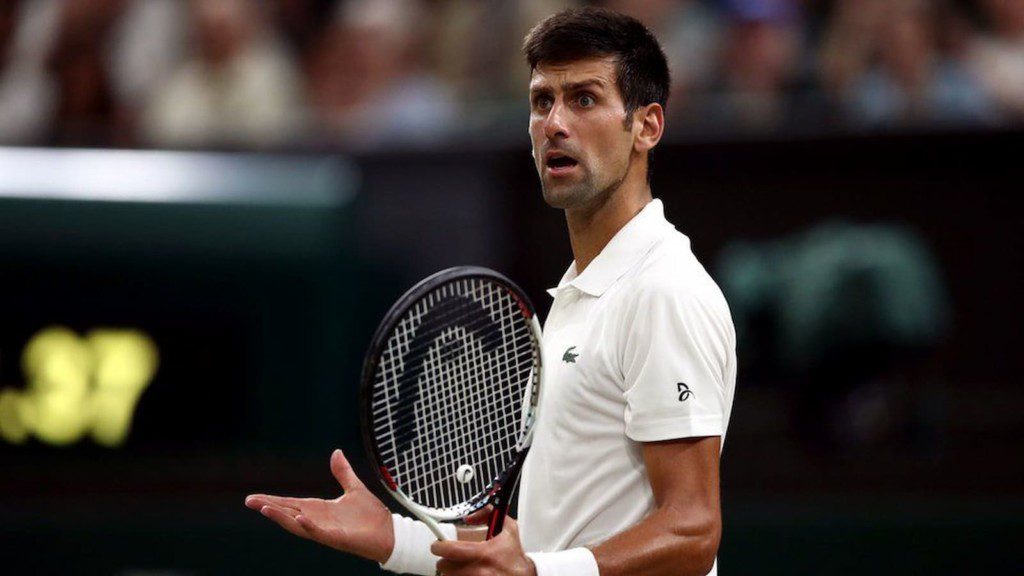Here’s how Novak Djokovic can win his case and play the 2022 Australian Open

Novak Djokovic
🔍 Explore this post with:
Novak Djokovic will be finally out of the federal isolation hotel where he has been kept since 7th January after he was detained at the Melbourne airport and questioned by immigration officers for nearly 9 hours after his visa was cancelled by the Australian government given his unvaccinated status.
While supporters and family members of Novak took to the streets in protests against the government demanding the freeing of the 20-time Grand Slam champion, the lawyers of the Serbian took the matter to court for a judicial hearing which will be the final determination of whether or not he can stay in Australia and go on to participate at the 2022 Australian Open.
As Djokovic continues to stay in the hotel that has been criticised by the Djokovic family for poor living conditions, the player will have to remain for another day as the court hearing is scheduled for Monday, 10th January when the saga will finally end. While many believe the Australian government might actually win the case, tennis journalist Amy Lundy Dahl looks at the scenarios in which the Serbian can win the case.
How can Novak Djokovic win the case against Australian government?

Dahl along with colleague Gill Gross approached an immigration officer to get clarity on the legal proceedings and how can the result be voted in the player’s favour allowing him to stay in the country and compete at the Grand Slam.
On what will be the biggest key for Djokovic at the hearing, the officer said, “The most important takeaway is that the government has to say that the decision was about rules or legal requirements. The fastest way for Djokovic to win his legal case is if the government admits it was a political decision to deny his entry at the border.”
Similarly, the officer mentioned that the burden to prove their case is on Djokovic and not the government as they are within their rules. “The most basic principle of immigration law is that a country controls its borders and a foreign national has no right to enter or stay in the country unless allowed by the government. The burden is on the foreign national to justify their entry, not the government,” said the officer.
The officer also spoke on the defence of Djokovic that he had been granted the exception but the officer explained how it is not helpful. “A foreign national interviewed by an immigration officer (including at a border by a border officer) needs to provide sufficient evidence to justify their entry to the country. Most of the time it goes smoothly as they review one’s paperwork, but the officer can dig deeper if the initial information does not satisfy them,”
“If the officer remains unsatisfied that the foreign national is eligible to enter, they may deny entry at the border even if the visa was granted before flying there. The officer has quite a bit of discretion in making their decision, but it is not unlimited, and their decision can be legally challenged via an application for judicial review in the courts,” said the officer.
Can Djokovic play the Slam while the case continues?

The journalists also put forth the chance of Djokovic allowed for the Slam while the case is still going on to which the officer said, “It appears his lawyers already tried this, and it hasn’t worked so far, but what they may still try to do is allow Djokovic to remain in the country (and compete) while this whole legal challenge is going on.
“Then even if they lose the challenge later it won’t matter because the tournament will be over. The Court seems to have resisted the idea so far (which is why the hearing is being held so quickly) and it seems unlikely Djokovic would convince a court on this point.“
Speaking about what does the player actually need to do to prove their case, the officer said, “Djokovic’s lawyers have applied for judicial review of the officer’s decision. They have to show that the officer’s decision was unreasonable. Or they can show it was procedurally unfair (unlikely in this case as there isn’t too much procedural fairness owed at the border) or that it was biased.
“The key question is, based on the information that was before the officer at the border, was the officer’s decision reasonable? Courts are typically deferential to an immigration officer’s decision so it will not be easy to show that the officer’s decision was unreasonable.”







